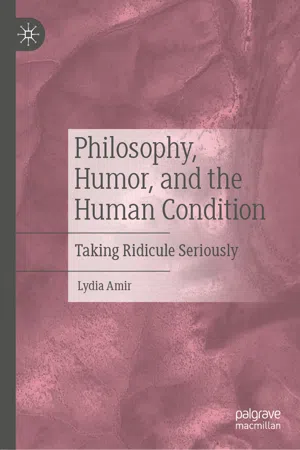1 The Tragic Sense of Life
“Tragedy” refers to a literary form, and to an unfortunate event disrupting the existence of an individual or of an entire people, which violently destroys the possibility of freedom. While the “tragic” refers to both meanings of “tragedy,” it also expresses a specific tonality of experiencing and reflecting about reality.
Referring to an unfortunate event as tragic often points to one’s experience, understanding and communication of reality.
1 That use of “the tragic” or “the tragic vision” is more restrictive than the
general use of “tragedy” or “the tragic,” which associates these terms with a “catastrophe” or “the sorrowful.” Tragedy’s definition as a literary form may illuminate the initial meaning of the tragic were it not for the difficulties involved in defining tragedy,
2 and the fact that the
tragic vision differs from tragedy as a literary form:
“Tragedy” refers to an object’s literary form, “the tragic vision” to a subject’s psychology, his view and version of reality…The tragic vision was born inside tragedy, as a part of it: as a possession of the tragic, the vision was a reflection in the realm of thematics of the fully fashioned revelation of aesthetic totality which was tragedy. (Krieger 1963, 131)
Though the poetics of tragedy can be traced back to
Aristotle,
Peter Szondi argues that “
only since Schelling has there been a philosophy of the tragic.”
3 Joshua Billings and Dennis Schmidt reprise Szondi’s classic assertion and show how
German idealism influences philosophical speculation on tragedy and the tragic.
4 They maintain that philosophic interest in tragedy is to be understood as both a historical phenomenon and a theoretical
paradigm:
Around 1800 theories of tragedy and ideas of
modernity often coincide and establish a pervasive sense of modernity as tragic.
5 Taken as covering post-Kantian thought, idealism in the broad sense of the word invests “
a profound meaningfulness in tragedy which remains with the genre, as is visible in scholarship, adaptation, and performance.”
6 Following Robert Pippin,
7 Billings argues that
Appropriations of tragedy around 1800 are efforts to grapple with the question of human freedom, a problem of central importance to post-Kantian thought…. Modernity seeks to understand itself by engaging with the alterity of antiquity. The idealist moment is united by common questions…which make tragedy important to the development of quite disparate philosophical approaches. They attempt to understand both the Greekness of Greek tragedy and its modernity. (Billings 2014, 6–7)
The notion of freedom is contested from philosophical and political points of view, by the Kantian critique and the French Revolution, as both cast doubts on freedom’s desirability and viability. Tragedy is newly defined and particularly valued by some of the most significant figures associated with German idealism, such as Friedrich Schiller, the Schlegel brothers (Friedrich and August Wilhelm), Friedrich Wilhelm Joseph Schelling, Friedrich Hölderlin and Georg Wilhelm Friedrich Hegel. A means of producing a certain emotional effect throughout the eighteenth century, tragedy is since 1800 a way of making sense of the world. Thus, Billings argues that “tragedy for moderns is uniquely philosophical.”8
Schelling inaugurates the philosophy of the tragic, Arthur Schopenhauer, Søren Kierkegaard and Friedrich Nietzsche carry it forward in the nineteenth century, followed by Max Scheler and Walter Benjamin in the early twentieth century. The philosophy of the tragic gives a new meaning to Greek tragedy which continues to inform philosophical, literary and historical discussions to this day. Thus, many twentieth-century and twenty-first-century thinkers have engaged with tragedy, including Sigmund Freud, Martin Heidegger, Arbogast Schmitt, Albert Camus, Jacques Lacan, Michel Foucault, Jacques Derrida, Luce Irigaray, Slavoj Žižek and Judith Butler.9
With Nietzsche as its chief prophet and preacher, “the tragic sense of
life ” has gained recognition since the nineteenth century as a modern, neo-Christian invention.
10 Modern consciousness has separated the tragic sense of
life from its aesthetic origins :
Fearful and even demoniac in its revelations, the [tragic] vision needed the ultimate soothing power of the aesthetic form which contained it—of tragedy itself—in order to preserve for the world a sanity which the vision itself denied…But what if we should find the Dionysian without the Apollonian? Here we would have life unalleviated, endlessly and unendurably dangerous, finally destructive and self-destructive—in short, the demonical. In effect it would be like tragedy without that moment in which the play comes round and the cosmos is saved and returned to us intact. It would be, in other words, the tragic vision wandering free of its capacious home in tragedy. (Krieger 1963, 137)
“The tragic,” liberated from “tragedy,” disengages from the therapy that the aesthetic form provides.11 The catharsis that tragedy offers by allowing the subversive elements to be healthily exposed and aesthetically overcome in the theatrical performance, as Aristotle explains in the Poetics, is no longer available to the “tragic sense of life.” Wandering freely since their disengagement from the literary form without the cathexis once aesthetically provided, the alienated members that the tragic now discloses turn inward to nourish their indignation in the dark underground.12
The tragic tonality of reflection does not concentrate on exploring the world, but on elucidating the realities of the human condition.13 Rather than being a systematic view of life, the tragic vision allows for variation and degrees. It is a sum of insights, intuitions and feelings, to which the terms “vision,” “view,” or “sense of life ,” however inadequate, more readily apply. For Miguel de Unamuno, the tragic sense of life is a sub- or pre-philosophy of which one is not fully aware, hence only partially formulated. De Unamuno views the tragic sense of life as reaching deep down into temperament, not so much flowing from ideas, as determining them. William James’s influence on de Unamuno is palpable, as in The Varieties of Religious Experience the sick soul’s melancholy determines the vision of its world.14
Most writers on the tragic sense of life agree on its contents, that it is the sense of ...
